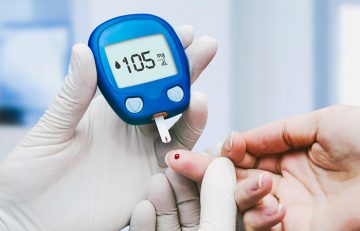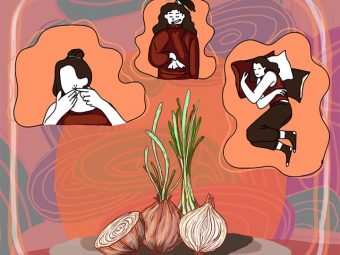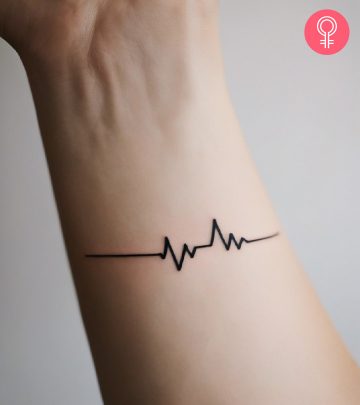What Might Happen To Your Body If You Sleep Too Much

Image: Shutterstock
We are the generation who dream about getting 8 hours of undisturbed sleep with our eyes wide open! Not that we are doing our sleep cycle any favors by adding endless numbers of coffee cups to our diet, or completing a whole series at 3 A.M! Now if by some miracle we were to get good sleep, it would be nice. But, have you ever wondered what happens if your body gets more sleep than you need? Well, too much of anything is never good, and the same goes for your sleep. Here in this article are some health problems you will likely face if you sleep more than how much sleep your body requires. Read on to know them all!
In This Article
1. Constant Fatigue
Contrary to popular belief, sleeping for long periods does not restore your energy levels and alertness (1). Instead, you are likely to end up feeling more exhausted and unmotivated. As an adult, you should aim for between 7 to 9 hours of sleep every night (2). Oversleeping causes mental fogginess and impaired concentration which we will explain in the following points.
2. Frequent Headaches
Oversleeping, which results from neurotransmitter misfires, often manifests with this symptom (3). A common cause of headaches is getting too much shut-eye. On top of that, snoring increases the odds of waking up with a headache. Statistics have shown that 60% of those who snore regularly are also prone to developing sleep apnea (3).
3. Health Problems
Too much sleep is a common contributor to the worsening of health ailments like persistent depression and back pain. Sleep apnea, in which you repeatedly wake up gasping for air, can also cause you to spend more time than necessary in bed. The effects on the heart can be detrimental. You probably won’t feel pleased and energized when you get up, but rather irritated and annoyed. When you wake up feeling exhausted and know that you won’t be able to get as much done as you’d want, it’s hard not to let your negative emotions take over and become cranky.
4. Premature Aging
In addition to a more rapid rate of facial aging, mental decline is also accelerated. The latter can potentially add 2 years to one’s looks. Memory and focus issues are caused by oversleeping. Oversleeping is also associated with sluggish metabolism and subsequent weight gain. As we age, our metabolism naturally slows down.
5. Cardiac Ailments
The more you sleep, the worse off your heart will be. With heart disease being the leading cause of mortality in the United States, sleeping more than 8 hours per night raises your risk of death from the condition by 34 percent (4).
6. Weight Problems
Many studies have found a correlation between insufficient sleep and excess weight, but the opposite can also be true. However, there isn’t a direct relationship between the two. We do know that the prevalence of long sleep duration increases with body mass index. Also, those who tend to sleep for extended periods are much more likely to be overweight.
7. Diabetes
High blood sugar levels have been linked to excessive sleep. High blood glucose levels have been linked to an increased chance of developing type 2 diabetes (5). So they aren’t the kind of dreams you want to be having.
8. Dizziness
Are you having trouble focusing? This might be attributed to your excessive time in bed. Studies found that excessive snoozing might prematurely age the memory by up to 2 years, making normal daily activities more challenging (6). Frequent awakenings experienced by long-sleepers during the night may contribute to the fact that they have problems with cognitive tasks that need only a few seconds of attention. You may not be receiving enough of the rejuvenating, deep sleep you need if you wake up too often.
9. Mood Changes
Sleep deprivation and depression are interconnected yet difficult to resolve. Some forms of depression are associated with increased snoozing. Further, research suggests that extra hours in bed may exacerbate depressive symptoms (7).
Who knew our dear sleep could give us so much pain! You must maintain a healthy balance between your sleep and wake-up time. Also, keep your phone and any kind of screen away an hour before you go to bed. Put on a soothing reading light and finish a chapter from your favorite book before going to bed. So what is your favorite way to go to sleep? Let us know in the comments section.
































